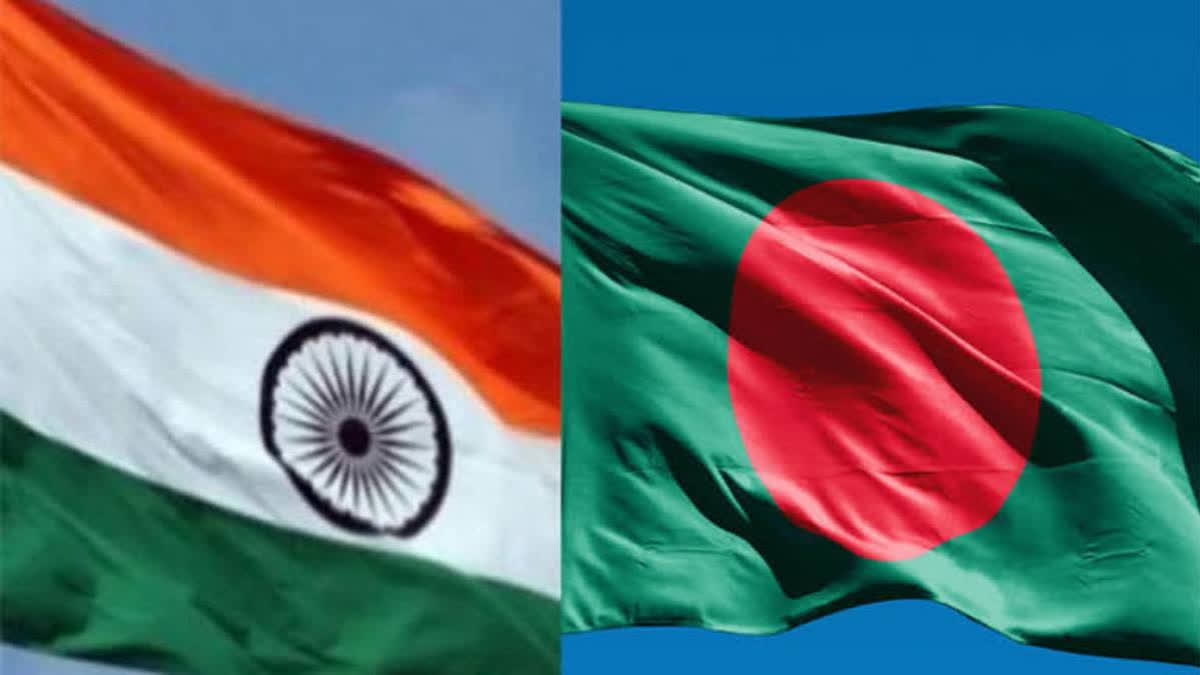New Delhi: The India-Bangladesh foreign office consultations scheduled to be held in December will be the first high-level bilateral interaction between the two South Asian neighbours after an interim government assumed power in Dhaka in the wake of a mass uprising that saw the ouster of Prime Minister Sheikh Hasina.
Bangladesh Foreign Ministry spokesperson Toufique Hasan, during a media briefing on Thursday, confirmed that the annual foreign office consultations between the two countries will be held in Dhaka sometime in early December. While the Indian delegation will be led by Foreign Secretary Vikram Misri, the Bangladeshi side will be led by Misri’s counterpart Jashim Uddin.
The foreign office consultations come at a time when bilateral ties between India and Bangladesh are poised delicately following the regime change in Dhaka earlier this year. On August 5, Hasina considered a close friend of India, was ousted from power following a mass uprising in protest against what people called her authoritarian style of governance. Three days later, Bangladesh President Mohammad Shahabuddin installed an interim government headed by Nobel laureate Muhammad Yunus as Chief Adviser.
With Hasina taking refuge in India, relations between the two South Asian neighbours have since been tense with no high-level visit taking place from either side till now. Meanwhile, the International Crimes Tribunal (ICT) of Bangladesh has ordered the extradition of Hasina and many of her associates who fled the country after the upheaval in August.
According to spokesperson Hasan, the issue of Hasina’s extradition from India might come up for discussion. “There is scope for discussion on the matter,” media reports quoted him as saying. K Yhome, a Fellow at the Shillong-based think tank Asian Confluence, said that such a statement from the current regime in Bangladesh is not unexpected.
“Since the new government took over, some of the positions it has taken towards India have not been cordial to say the least,” Yhome told ETV Bharat.
He explained that the fact that Hasina is a close friend of India and has been given shelter by the government in New Delhi has not gone down well with the government and the people of Bangladesh.
“The relationship between the interim government in Bangladesh and New Delhi started on that note,” Yhome said. “The current government in Bangladesh, given all its political compulsions within the country, will have to bring up the issue of Hasina’s extradition when it comes to dealing with New Delhi.”
During his media briefing on Thursday, Hasan also said that the process of reviewing agreements and memorandums of understanding (MoUs) with India is underway, “but it is a time-consuming matter”. It is worth mentioning here that since the ouster of Hasina, work on all India-financed projects in Bangladesh has been stalled.
Bangladesh is the largest development aid partner of India. India has extended three lines of credit (LoCs) to Bangladesh in the last eight years amounting to around $8 billion for the development of infrastructure in various sectors including roads, railways, shipping and ports. In addition to the LoCs, the Government of India has also been providing grant assistance to Bangladesh for various infrastructure projects, including the construction of the Akhaura-Agartala rail link, the dredging of inland waterways in Bangladesh and the construction of the India-Bangladesh Friendship Pipeline.
High-impact community development projects (HICDPs) constitute an active pillar of India’s development assistance. The Government of India has funded 77 HICDPs including the construction of student hostels, academic buildings, skill development and training institutions, cultural centres, and orphanages among others in Bangladesh and 16 more HICDPs are being implemented, with all 93 projects amounting to over $50 million.
